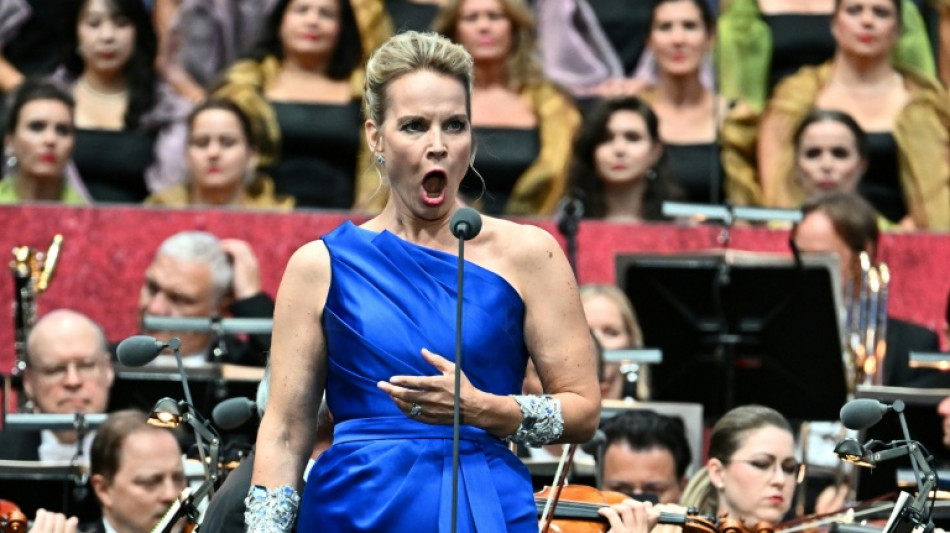

Classical music is not Netflix, says Latvian mezzo-soprano Elina Garanca
In her decades-long career, star Latvian mezzo-soprano Elina Garanca has seen the ups and downs of the music industry first hand.
But the business has changed drastically with the rise of social media, even impacting the way many people inside and outside the industry approach classical music -- namely "without patience or time", she told AFP.
"Nowadays young singers are immediately put on a maximum platform through social media even without any experience, which I find very cruel," Garanca, 48, told AFP in an interview over the weekend ahead of a gala concert in Vienna.
Lured by promises from the industry of quick success, the fledgling singers can get "discouraged by small failures", amplified by the intense scrutiny they are subjected to on social media platforms, she warned.
They risk "burning themselves (out) very quickly" before their voices have reached their full potential, she told AFP by telephone.
"A lot of people don't have a clue anymore, very few conductors know how to work with a singer's voice, artistic and theatre directors have no time and patience to help build a career. (Only) a few really take care of that," Garanca said.
Aspiring singers "have to be very strong-minded on their own to protect their voice, personality and emotional stability".
Born in 1976 in Riga into a musical family, Garanca grew up to become one of the biggest mezzo voices of her generation.
She has set the standard for many lead roles, chief among them her energetic performance in the title role of Bizet's opera "Carmen".
The New York Times called her "the finest Carmen in 25 years".
- 'Overcharged' -
Garanca believes digital media are reducing people's attention spans, to the detriment of classical music -- part of what she calls the platforms' "irritating" impact on society, which she is hopeful will be reversed.
"Society has also changed. Nowadays nobody has time for a movie and instead wants a 45-minute Netflix series, so they can move on," she said.
"People are overcharged with information, so to sit down without your phone and concentrate for one and a half hours, following the text, the music, the emotions, the story is a big task, on an emotional and intellectual level."
Garanca said she owes her long career to stringent "long-term planning" and striving to "reinvent herself" when it comes to what she sings.
"My career has first encompassed the 10 years of Mozart, Baroque and Bel Canto, then 10 years of more romantic (repertoire), now the 10 years of dramatic repertoire including Wagner and of course I'm thinking also about the next 10 years -- what I could offer that I have not sung yet."
Refusing to be pigeonholed and "limited to either concert or opera singing", she said she made sure to allow herself time to develop her voice and if needed "postpone some roles".
Looking ahead, Garanca said she feels privileged that her voice still allows her to perform and she "hasn't yet decided" when to retire, but has begun doing more teaching to give back to the next generation.
"It's not whether I would like to (retire) or not, I will have to at some point. I'm just trying to find the best way, how to do it and when to do it," she said.
"Being in front of people all the time, in front of cameras, on livestreams, it is a certain amount of stress. And at some point you just don't want to have it anymore."
O.Kelly--VC







